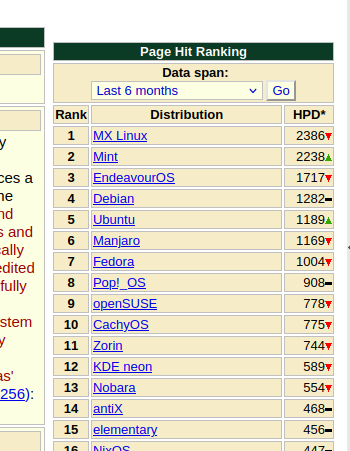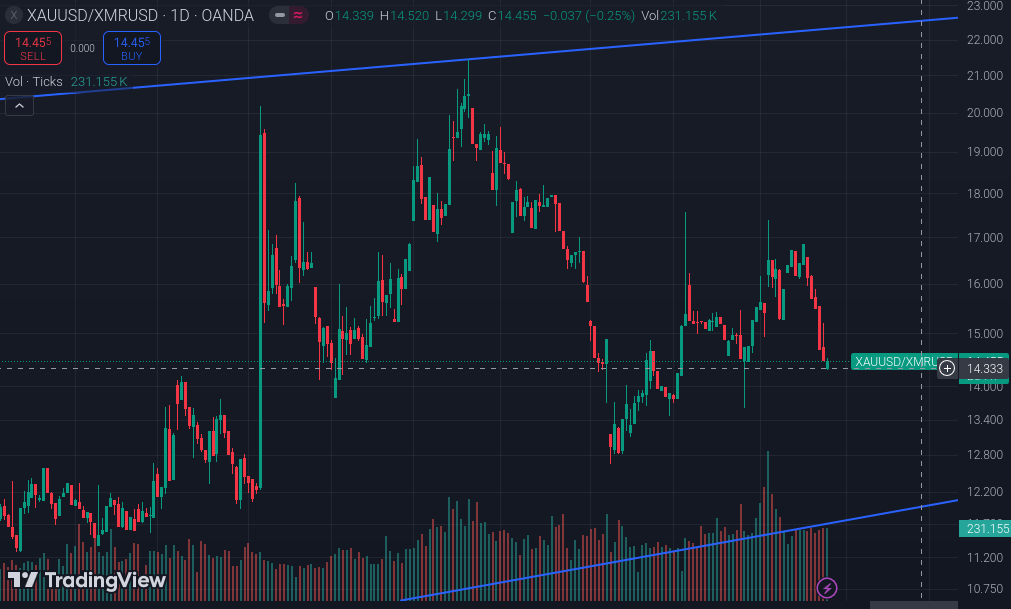Please sign this letter requesting Trump pardon
Irem, smart and beautiful.
Love the project, the energy, the direction.
Move the bulk of your wealth out of stock markets, IRA's, and 401k's and into precious metals like gold and silver. The state will always be evil, but a broke state is less evil. As entire societies move assets out of markets into physical precious metals, you contribute to the destruction of all fiat currencies globally. Think about it, if nobody accepted the USD, how long would the military industrial complex (MIC) last? Honest, gold and silver backed money provides a healthy constraint on the voracious appetite for making war by the MIC.
Monero may thrive as a primary store of wealth one day, but while the FINCEN machine is alive and well, it will remain under threat. Gold and silver do not suffer the same level of oppression from regulatory authorities, so it is a safer way to exit the fiat system presently with the bulk of your wealth.
Even if you're ignorant to the evils of your master, you're still complicit. Ignorance is NOT a defense, especially when there is so much evidence of governments deliberately causing harm to it's citizens!
The silver academy is a sub-stack that covers what happens in silver. It's readers are mostly precious metals collectors. They do not sell any precious metals and receive no proceeds from any sale resulting from you reading this article. You could have actually read and researched this yourself, but like most people, you don't take the time to actually read things through. Read thoughtfully, carefully, don't scan over and fire out a response before you understand the validity of sources cited.
Funny, flatpak works on MX, but it kills performance. I launch any flatpak program and it's literally up to five minutes to launch. After re-imaging and using AppImages instead, it's blazing fast. There must be something about the way MX implements flatpaks that screws the pooch.
I've bounced around alot, have numerous distributions on my Proxmox Hypervisor, but my favorite daily driver, for a really old computer, is ( MX Linux ) I've twice tried other distros to see if I could improve upon the stability and performance, as well as the very convenient availability of a feature rich KDE Desktop environment, and I came back to MX twice now. When I get a new fast computer, I'll switch to Qubes OS, for it's built-in hypervisor and security/privacy and isolation features, but until then, I'll stick with MX.
IMHO, there are excellent reasons why MX ranks highest. I think it's original roots in AntiX with the elimination of systemd has afforded it a substantial advantage over stock-standard Debian, my last daily driver which always had performance issues. With MX, on same hardware, system lock ups are far less frequent when the system is overtaxed.

This is the first I've seen of this. We're talking about which redesign before the obvious discussion that we should have, "whether" the site needs a redesign. I'm open to changes if someone can justify them with a requirements change. Let's first discuss current requirements, whether the current site meets those requirements, then decide if we want to change those requirements. From a consumer of the website, the current site meets all the requirements for it's current mission. Thoughts??
A little off topic, but with the way censorship is ramping up all over the globe, this may be the new norm for savvy Linux users everywhere.
I discourage the implementation of AppImage creation because it's a cheap and dirty way to tick the box for Linux compatibility, yet this does not translate into usability for the Linux user. Some cons to this half-baked shortcut IMHO are:
- packages don't update with operating system updates using native package managers like apt or yum so updates are clumsy and in some cases have broken my system.
- packages don't integrate with operating system menu hierarchy.
- it can tend to circumvent the quality controls inherent in the package introduction processes of these distributions, therefore reducing it's overall reliability as a tool. (it's also a great way to sneak malicious code on to your machine, btw)
What you end up with is a broken app, which may not break your system entirely at first. Any of those that continue to attempt to correct these broken apps can either get lucky and fix the app, or make things worse and really break the Operating System. It is for these reasons I urge the developer community to avoid using snap, AppImage, or Flatpak and stick to releasing binaries for specific distributions like .deb or .rpm.
I'd rather wait a year longer for it than have you check off your "Linux compatibility" box and never look at it again.
I'm not a programmer, so if you find any statements factually incorrect, I'll beg your forgiveness in advance and ask that you don't bite my head off in your reply, just politely point out and correct factual misstatements and save your energy for writing code for binary installation package files like .deb or .rpm.
Sincerely,
Prancing389
It's because the Khazarian bankers are behind Proton, as deep state as it gets.

Go to Bastyon, and you can use built in translator to English.